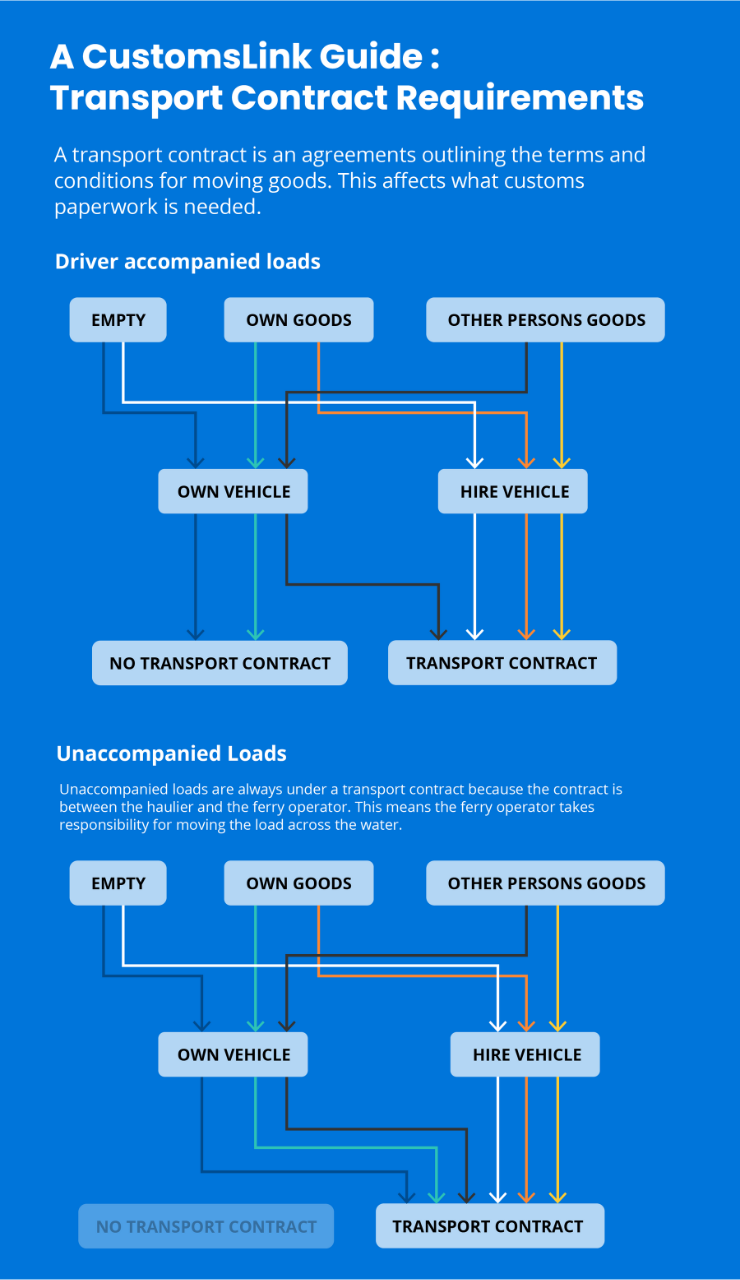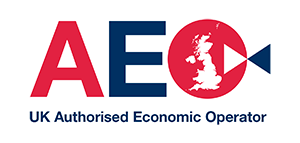A transport contract is an agreement between two parties for the movement of goods from one place to another, whether it is written or verbal agreement.
It normally involves a carrier (the person or company transporting the goods) but could include hire vehicles and a shipper (the person or company sending the goods).
For accompanied loads
- OWN GOODS + OWN VEHICLE = NO TRANSPORT CONTRACT
- OWN GOODS + HIRE VEHICLE = TRANSPORT CONTRACT
- OTHER PERSONS GOODS + OWN VEHICLE = TRANSPORT CONTRACT
- OTHER PERSONS GOODS + HIRE VEHICLE = TRANSPORT CONTRACT
For unaccompanied loads
- OWN GOODS + OWN VEHICLE = TRANSPORT CONTRACT (due to the ferry being the active means of transport)
- OWN GOODS + HIRE VEHICLE = TRANSPORT CONTRACT
- OTHER PERSONS GOODS + OWN VEHICLE = TRANSPORT CONTRACT
- OTHER PERSONS GOODS + HIRE VEHICLE = TRANSPORT CONTRACT

Examples for ATA Carnets and Oral Declaration accompanied movements
ATA Carnet
No ENS Needed - If you are using an ATA Carnet for temporary admission of goods and you are not moving the goods under a transport contract (for example, you are personally accompanying your own goods or driving your own vehicle), an ENS is not required.
ENS Required - If the goods covered by an ATA Carnet are moved under a transport contract - you have engaged a commercial carrier, haulier, or shipping company (whether by written or verbal agreement) to transport the goods for you - then an ENS must be lodged.
Oral Declaration - e.g. empty pallets/trailers
No ENS Needed - Oral declarations at the border (or declarations by conduct, e.g. empty pallets) if the goods are NOT being moved under a transport contract. This means you are transporting your own goods yourself.
ENS Required - If the goods are being carried by a transport company (i.e. under a transport contract), even if they otherwise qualify for oral or by conduct declaration. You must submit an ENS declaration in these case.








